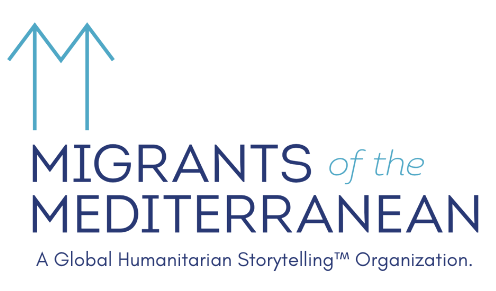Meet Pazi
Pazi on Lampedusa island, about one month after his rescue at sea. Lampedusa, Italy; November 2016. ©Pamela Kerpius/Migrants of the Mediterranean
by
Pamela Kerpius
Recorded:
November 2016
Published:
2017
Meet Pazi.
23 years old and from Gambia.
To reach Lampedusa he crossed six countries: The Gambia, Senegal, Burkina Faso, Mali, Algeria, and the most dangerous of all, Libya.
His trip took about nine months. Instead of crossing the desert by way of Agadez, Niger, like the majority of others, he detoured to Algeria. He was lucky to find refuge there with a man who allowed him to work in his family garden. The family provided housing and food, and he was safe while he earned enough money to leave for the next step of his journey; he stayed in Algeria for four months.
When he left for Libya, Algerian military kidnapped him. His legs were tied and beaten. His money was stolen. He managed to negotiate with a higher official to get back half of his cash.
He continued on to Libya where smugglers packed people so tightly in a truck that they couldn’t move or breathe. There were no windows, so there was no air. There were small children in the truck, about five years old, he says. There were women and girls, and babies in the truck. People were crying.
The smugglers sold the truck to Libyan police. This way, smugglers increase their profit, while giving the police a chance to profit from Pazi’s capture, as well. He tried to run but he was caught and beaten.
He was in Libyan prison for three months, at a location somewhere within the Tripoli city limits. To eat, he was was allowed two handfuls of a flour and water mixture each day. The water they drank was salty. Prisoners were dehydrated and coughing. There were 500 people in the prison, he estimated; some had no space to sleep. There was fighting among the prisoners. Authorities cut people’s eyes out. There were young Nigerian and Gambian girls there––15, 16, 17 years old. There were no sanitary products for them while they were menstruating; there was “blood all over,” he says. Babies were delivered in the prison.
“I looked up, and I looked down,
and there was nothing. There was
nobody else there but God.”
To get out of prison you must have a contact in Tripoli who the police will use to contact family to blackmail for money for release; the police will not make the expensive calls themselves. Pazi did not have a contact.
After three months he escaped. He worked for exploitative employers in Tripoli who at the end of the day would not pay him the agreed-upon fee, or sometimes nothing at all. It took him one month to earn 1000 dinars (about 500 Euros, he guessed) to pay for passage on the boat.
He crossed the Mediterranean Sea at 1:00am on an overloaded rubber dinghy with 136 people. It was dark and girls on board were crying.
“I looked up, and I looked down, and there was nothing. There was nobody else there but God.” He prayed to Allah.
A German rescue ship picked them up after 10 hours on the dinghy, and he was emphatic about this point: the Germans showed him incredible kindness. “I’d like to meet those people again. They were so nice.”
He was transferred to an Italian Coast Guard vessel and brought to Lampedusa, where he has been in the hotspot for about a month; the detention center is meant as a transfer point for refugees, for occupancy of no more than 72 hours.
Pazi is smart and funny. He is educated through the 10th grade but would like to go back to school. He speaks many languages. He knows how to sew, which he used to do for work in Gambia. Pazi’s dream is to be an artist, a musician; he can sing a little bit too.
Pazi is an amazing human being.
Read Pazi's one-year followup story, recorded November 2017 >

